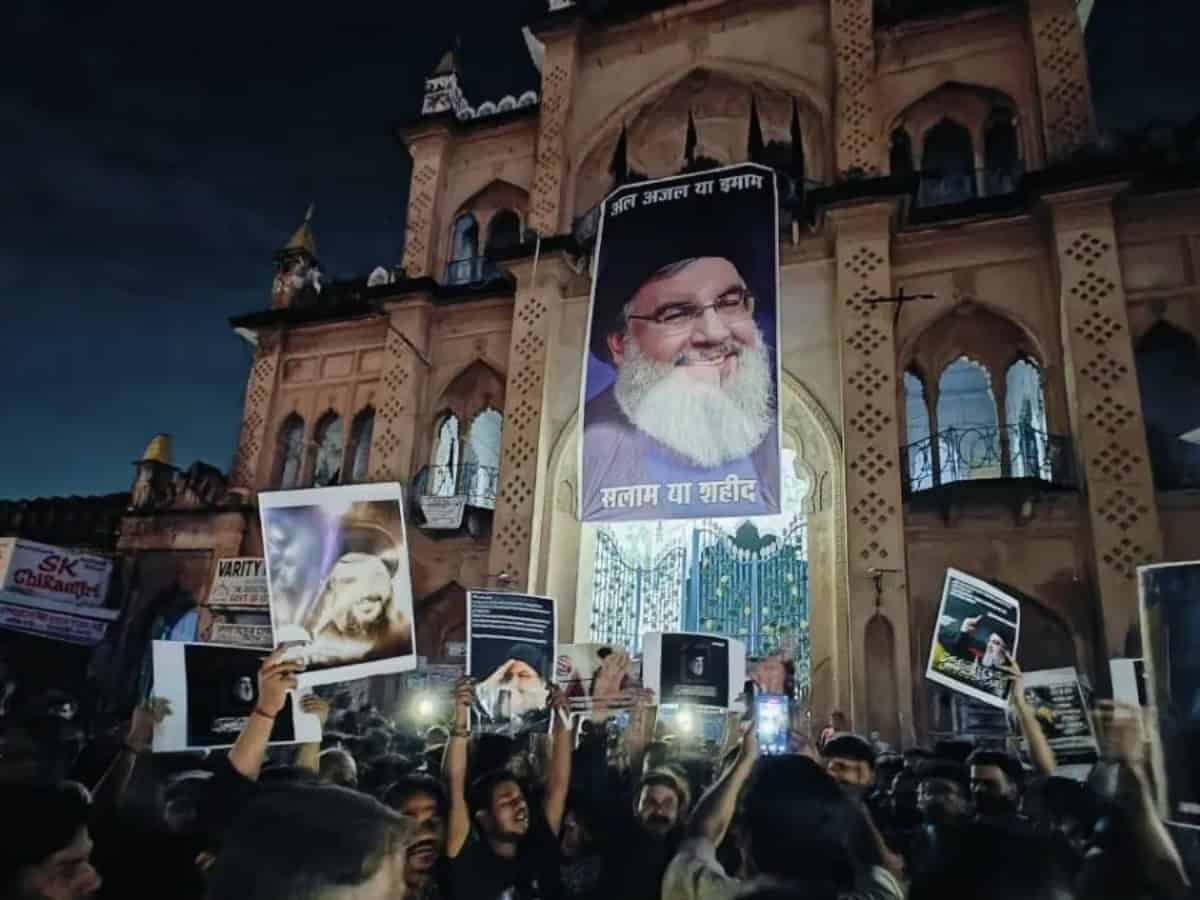
The Uttar Pradesh police have initiated legal action against 11 identified individuals and approximately 40 unidentified Muslims following a candle protest march in Amethi district to express solidarity with Lebanon and slain Hezbollah chief Hassan Nasrallah.
The protest was organised under the jurisdiction of the Jais police circle on Tuesday, October 1 to express outrage over the assassination of Nasrallah who was killed in an Israeli airstrike on September 26. The protesters carried images and banners of Nasrallah and marched near Jama Masjid. However, their procession was blocked by police who deemed it unauthorized.
Hassan Nasrallah was the long-standing leader of Hezbollah who had led the group for 32 years. Following his death, a series of anti-Israel and American protests erupted across India including in Lucknow and Kashmir valley.
Legal action against protesters
The police accused the protesters of not seeking permission for the demonstration and claimed they violated a section of the Bharatiya Nagrik Suraksha Sanhita (BNS). Pertinently, this law prohibits gatherings of five or more individuals without official permission.
In the wake of the protest, the police filed charges against 11 people named and 40 unidentified participants under relevant sections of the BNS including 189(2) (unlawful assembly) and 223(a) (disobedience of a public servant’s order).
According to the reports, the police on the following day launched a crackdown, raided several homes and arrested eight individuals who were later presented before a magistrate.
Speaking on the case, the station house officer (SHO) of Jais, Ravi Kumar Singh said that police are reviewing video footage of the incident to identify additional participants, emphasizing that further arrests may follow based on the evidence collected.
The All India Shia Personal Law Board has condemned the police action and expressed anger over the actions against the protesters.
The general secretary, Maulana Yasoob Abbas accused the law enforcement agencies of arresting people mourning the assassination of Nasrallah. He claimed that Nasrallah played an important role in combating terrorist groups such as ISIS (Islamic State of Iraq and Syria) and called for the immediate withdrawal of all cases against the protesters.
Maulana Abbas pointed out Nasrallah’s stance in defending holy sites during conflict situations in Syria and referred to Nasrallah’s death as a big loss to the Muslim world. He continued, “Nasrallah was a key player in combating terrorists, quite notably, and was an emblem of the resistance against injustice.”
“Nasrallah was a pivotal figure in the fight against terrorist groups like ISIL. He defended the Holy Shrine of Hazrat Zainab during the ISIS attacks in Syria and was a symbol of resistance against oppression,” Maulana Abbas said as quoted by The Wire.



